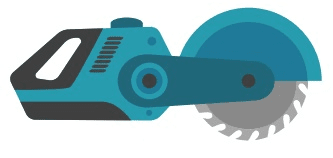Understanding Power Tools Prices: A Comprehensive Guide
Recently, the power tools market has experienced substantial development due to different factors such as the increase in home remodelling tasks, increased DIY activities, and technological advancements. As an important part in building and woodworking, power tools can be found in various shapes, sizes, and performances. However, among the most important concerns for both experts and amateurs alike is: just how much do power tools cost? This short article aims to provide a detailed introduction of power tool prices, aspects influencing these prices, and practical considerations for prospective purchasers.
Power Tools Categories and Pricing
Power tools can be broadly classified into several types, each with varying cost ranges. The following table summarizes common power tools along with their typical price varieties:
| Power Tool Category | Example Tools | Rate Range |
|---|---|---|
| Drills | Cordless Drill, Hammer Drill | ₤ 30 - ₤ 400 |
| Saws | Circular Saw, Table Saw, Jigsaw | ₤ 50 - ₤ 1,500 |
| Sanders | Orbital Sander, Belt Sander | ₤ 25 - ₤ 200 |
| Grinders | Angle Grinder, Bench Grinder | ₤ 30 - ₤ 500 |
| Nailers | Pneumatic Nailer, Cordless Nailer | ₤ 50 - ₤ 300 |
| Effect Wrenches | Cordless Impact Wrench, Pneumatic Impact Wrench | ₤ 70 - ₤ 400 |
| Generators | Portable Generator, Standby Generator | ₤ 500 - ₤ 5,000 |
| Devices | Drill Bits, Saw Blades | ₤ 10 - ₤ 200 |
Price Breakdown
When talking about power tool prices, it is crucial to think about the following elements that can affect their expense:
- Brand Reputation: Established brand names such as DeWalt, Makita, Bosch, and Milwaukee typically command higher prices compared to lesser-known brands due to their credibility for dependability and performance.
- Power and Capacity: Higher wattage or more powerful models typically feature a greater price. For instance, professional-grade tools with advanced functions and sturdy specifications will frequently be more pricey than entry-level designs.
- Product Quality: Tools made from high-quality products (e.g., metal real estate rather of plastic) tend to cost more however also provide much better sturdiness and durability.
- Battery Technology: Cordless tools equipped with lithium-ion batteries tend to be more pricey than those utilizing NiCad batteries due to their longer runtime and much shorter charging times.
- Features and Technology: Advanced features such as programmable settings, built-in sensors, or brushless motors can considerably increase a tool's price.
- Set Versus Individual: Purchasing tools as part of a set can often lead to expense savings compared to purchasing them individually.
Cost-Saving Considerations for Buyers
When seeking to buy power tools, smart consumers can think about the following techniques to save money:
- Buy wholesale: Purchasing tools as a set or bulk can present significant cost savings.
- Sales and Promotions: Keep an eye out for vacation sales, Black Friday, or clearance events where prices might drop significantly.
- Reconditioned Tools: Buying factory-refurbished tools can provide a fantastic deal while still guaranteeing quality.
- Rental Options: For periodic usage, think about renting power tools rather than buying them outright.
Frequently Asked Questions (FAQs)
Q: What is the average expense of a great quality drill?A: An excellent
quality cordless drill generally varies from ₤ 50 to ₤ 200, depending on the brand and functions.
Q: Are more costly power tools worth it? Best Tools Online : Higher-priced tools typically provide much better resilience, performance, and warranty, making them beneficial for serious users. For casual users, economical choices can be enough.
Q: Do power tools usually come with a warranty?A: Most respectable brand names provide service warranties that vary from one to 5 years, ensuring protection versus flaws and breakdowns. Q: How can I ensure I am purchasing the ideal tool for my
needs?A: Determine the kind of projects you will be doing and evaluate the needed functions, power, and size before buying. Q: Is it better to buy corded or cordless power tools?A: This depends on your particular requirements.
Corded tools supply consistent power for extensive use
, while cordless tools use portability and benefit. The world of power tools is huge, and understanding their prices structure can substantially impact
acquiring choices. By being notified about the aspects that influence power tool prices and using cost-saving methods, potential purchasers can make educated options, guaranteeing they get the most performance and durability out of their investments. With the right tools, whether for expert work or DIY home enhancement jobs, the journey of craftsmanship can be both enriching and satisfying.

